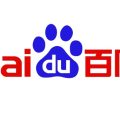The Start Up Story Of Tencent Holdings And Pony Ma, Zhang Zhidong, Xu Chenye, Charles Chen, and Zeng Liqing
Tencent (www.tencent.com) is one of China’s largest and most popular internet companies. It had its humble beginnings in November 1998 and since then has reached the zenith through years of hard work and client-friendly operating strategies. It was a big day for the company when it went public, as Tencent Holdings Limited was on the main board of the Hong Kong Stock Exchange.
Tencent is bounded by its mission to improve the quality of human life through its different Internet services. The company is a one-stop center for mobile, telecom services, online advertising, and value-added Internet. The popular Internet platforms of Tencent include QQ.com, Paipai, Tenpay, Qzone, 3g.QQ.com, and some other smaller sites. These cover the Internet user’s different requirements like information, entertainment, e-commerce, communication, etc. The development of Tencent has influenced the communication and lifestyle of the Chinese. Tencent has its future program ready. It is busy acquiring patents for e-commerce, online payment services, gaming, and search engines all of which would further expand its business. It is an active participant in charity programs and the charity goes towards improving youth education, care of the disadvantaged, assistance to the impoverished, etc.
Tencent’s Startup Story
Tencent Holdings Ltd was co-founded by Pony Ma, Zhang Zhidong, Xu Chenye, Charles Chen, and Zeng Liqing as a software company. The company’s name – “Tencent” – derives from the Chinese name Tengxun (Chinese: 腾讯), which is actually part of Pony Ma’s Chinese name (Ma Huateng; 马化「腾」) and stands for: “galloping fast information”. The founders realized the potential of internet-related services in China, at a time when the country was just starting to open up to the outside world. They developed a vision to provide a suite of internet services that would make life easier for consumers. The company they founded was initially called Tencent, an abbreviation of their vision “Tence – to connect people”.
The company launched OICQ in the February of 1999- a copy of ICQ instant messenger software. The product had a tremendous response and saw unprecedented user growth. It later changed the name OiCQ to QQ due to legal problems with the ICQ original company. IDG and PCCW both funded the company in 1999 and later a South African media company –Naspers also purchased 46.5% of the business. Currently, IDG has a 7% ownership and the Naspers has 46.5 % and the rest 46.5% is owned by the founders and a group of Chinese entrepreneurs. Tencent has always striven without resting on its laurels. They dabbled in premium membership schemes, and web advertising. The mobile value-added services of the site were a real success and this began with the launch of Mobile QQ in May 2000. The mobile offerings of Tencent included chat, mobile music, and pictures, mobile news, mobile games, and ringback tones to name just a few.
A major milestone in Tencent’s growth occurred in 2011, when it launched WeChat, a mobile messaging and social media platform that has now become the dominant social network in China. WeChat is a popular messaging, social media, and mobile payment application developed by the Chinese technology giant Tencent. It was released in 2011 and has quickly become one of the world’s most popular applications with over 1 billion monthly active users. WeChat is used in both urban and rural areas and across multiple platforms, including Android and iOS devices. WeChat is best known for its extensive messaging and communication features, but it has also become a powerful platform for commerce and social media. WeChat has revolutionized the way people communicate and interact with each other, and the way companies conduct business. Tencent has been able to maintain its dominant position in the Chinese internet sector by continuously innovating and adapting to changing consumer preferences.
Tencent rose to become a leader in Service providers in China. The timing couldn’t have been more convenient as this was the time when Chinese mobile operators (China Mobile and China Unicom) started allowing service providers. It started raking in profits in 2001 and got enlisted in the Hong Kong Stock Exchange. It enjoyed the tremendous response from its subscribers and was sometimes finding it difficult to meet the requirement. Founder Ma Huateng had a net worth of 100 Million dollars around that time. As is with the success stories, the company had its own hurdles as mobile operators started implementing stringent regulations as they wanted a greater share of the stakes. Tencent diversified and started social networking and online gaming services. They also incorporated the virtual goods model, developed the QQ show, and developed in-house casual games, board, and card games. It worked for improving QQ.com and turning it into a top site thus growing its advertising business. Tencent is an ambitious company as can be concluded from its forays into developing search engines, an e-commerce site, and so on.
Some of the top Tencent-owned applications
In recent years, the Chinese tech giant Tencent has become a driving force in the tech world, particularly in mobile. From popular gaming apps to messaging platforms, Tencent has established itself as a leader in the app industry. Here, we present an overview of Tencent’s top apps.
1. WeChat – is Tencent’s flagship messaging app. It features a wide range of features, including voice calling, video calling, instant messaging, social media sharing, and more. It is one of the most popular apps in China and is used by over a billion people worldwide.
2. QQ – is another popular messaging app, It offers similar features as WeChat, but with a more basic design. It is widely used in China and is the number one messaging app in the country.
3. Tencent Video – is a streaming platform, It offers a wide range of movies and TV shows, as well as live streaming of sports and other events. It is the leading streaming platform in China and is a great alternative to Netflix.
4. QQ Music – company’s music streaming app. It offers an extensive library of songs from across the world, and users can create music playlists and listen to them with friends. It is the largest music streaming service in China.
5. QQ Games is a gaming hub that gives users access to a wide selection of casual and hardcore games that can be played online or downloaded for free. It is one of the most popular gaming hubs in China.
6. PUBG Mobile – is a mobile version of the popular battle royale game PlayerUnknown’s Battlegrounds. Developed by Tencent in collaboration with Chinese game publisher Lightspeed & Quantum, it has been a smash hit in both China and the rest of the world.
7. TikTok. TikTok is a short-form video app developed by ByteDance. It has become one of the most popular social media applications in the world, especially amongst the younger generation.
8. WPS Office. WPS Office is a productivity suite developed by Tencent for both mobile and desktop platforms. It offers a range of features, including document editing, PDF creation, and presentation creation. It is especially popular in Asia.
9. Clash of Kings. Clash of Kings is a real-time strategy. Players take the role of a ruler and must strategically build up their kingdom in order to win wars against other players. It is one of the most popular strategy games in the world.
10. Honor of Kings. Honor of Kings is a mobile MOBA game that has a unique level-based system that allows players to battle against each other in a 5v5 format. It is one of the most popular mobile games in China.
Tencent continues to be a driving force for the development of China’s internet sector. Its investments have enabled a number of tech startups to gain traction, as well as enabled many companies to expand into the global market. Tencent’s market cap has continued to grow year-on-year, and today it operates businesses in entertainment, social media, fintech, and the digital economy.
At the same time, the company has actively worked to empower its partners and build a technology-friendly environment with its commitment to freedom of speech, security, privacy, and innovation. Its success has been an inspiration to many Chinese entrepreneurs and its growth is testimony to the potential of leveraging technology to create business opportunities.






